Australians suffered the world’s biggest decline in household disposable income in 2023, falling a whopping 6% year-on-year:
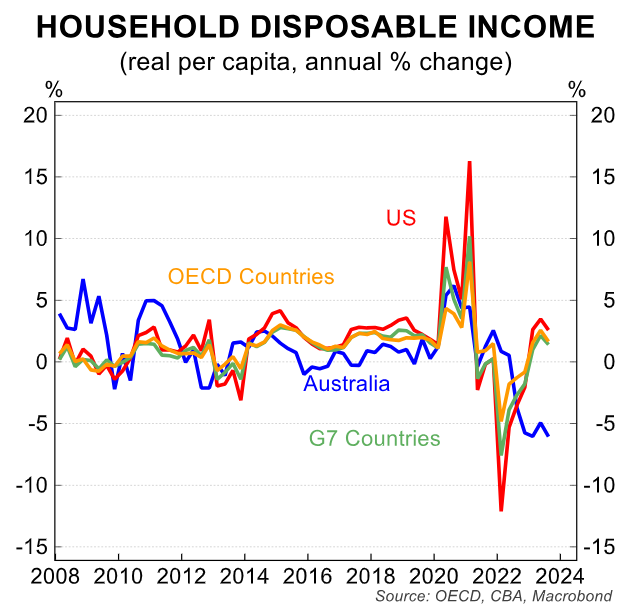
There were three main reasons for the slump in Australian household disposable income.
First, Australian wages have risen less strongly than other advanced nations:
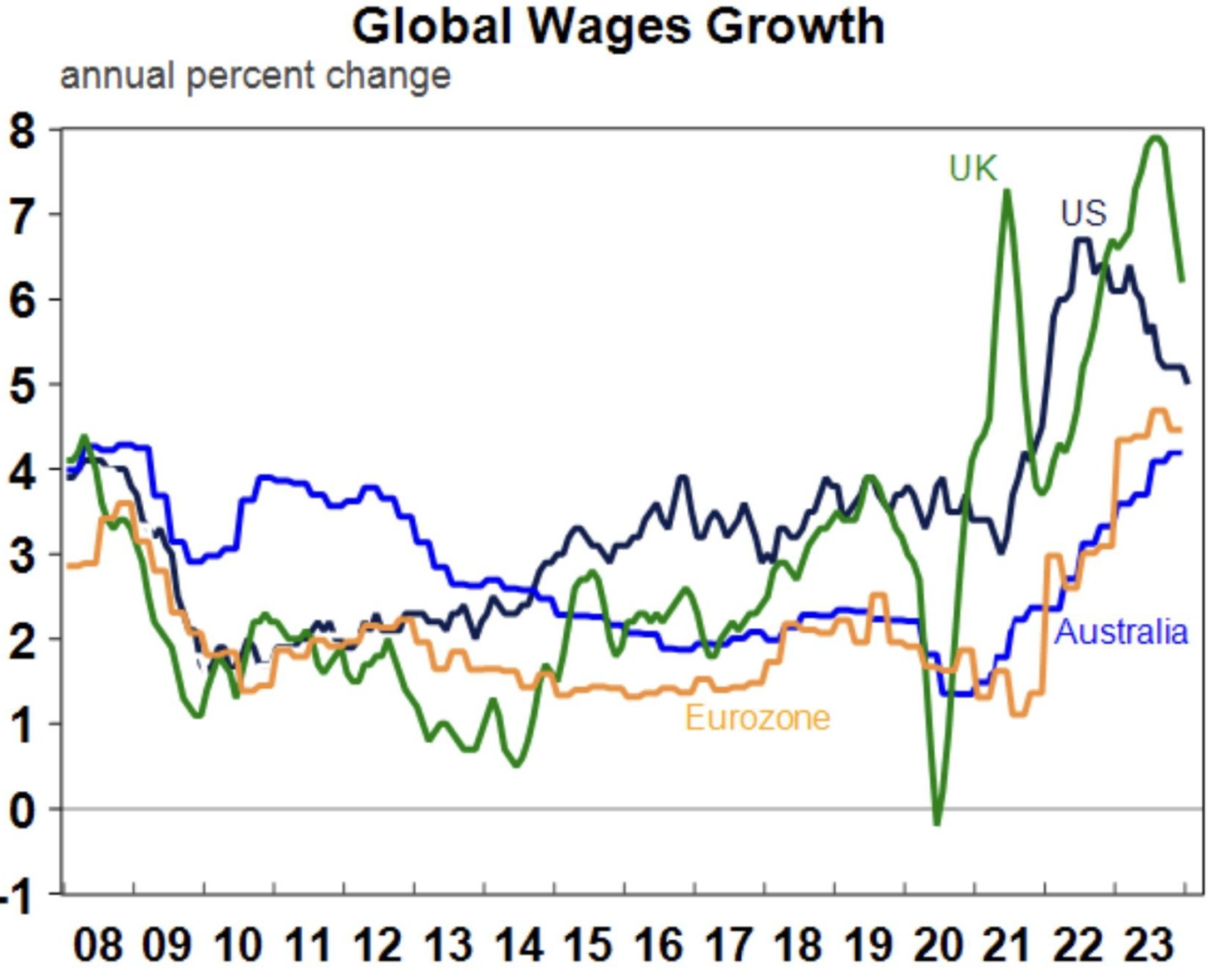
Source: AMP
Second, Australians were hit hardest by rising mortgage rates owing to our higher exposure to variable rate mortgages:
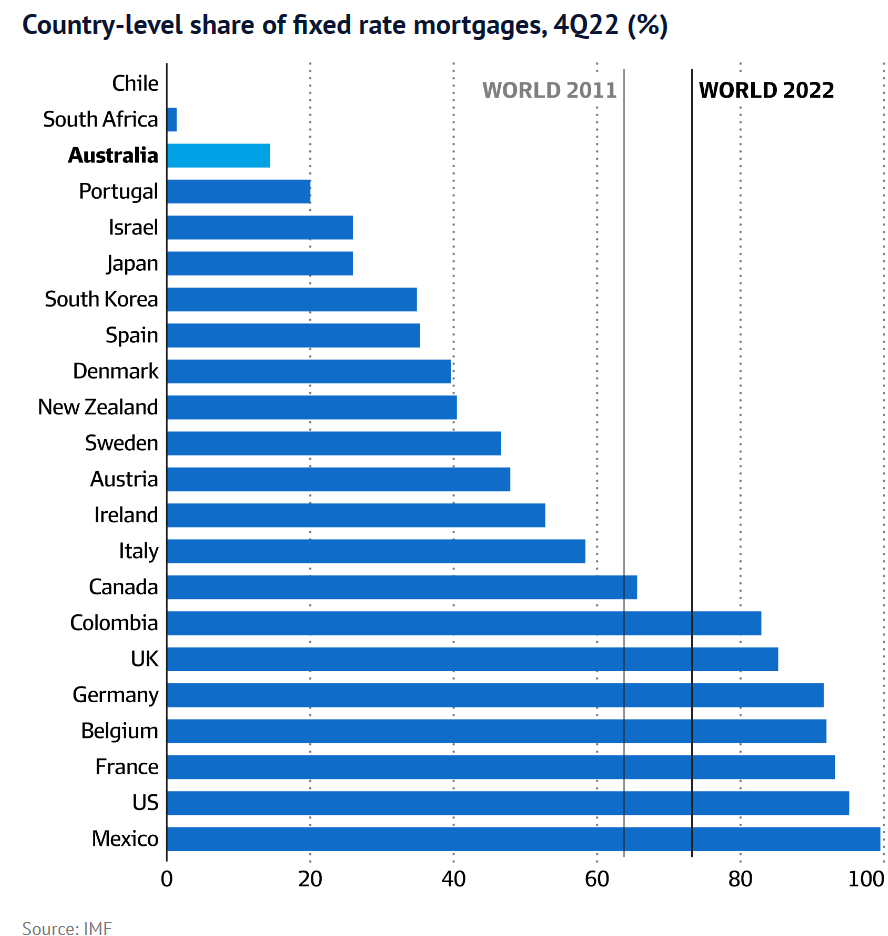
The following charts from CBA tell the story, with Australia’s rise in outstanding mortgage rates and debt repayments outpacing other advanced nations:
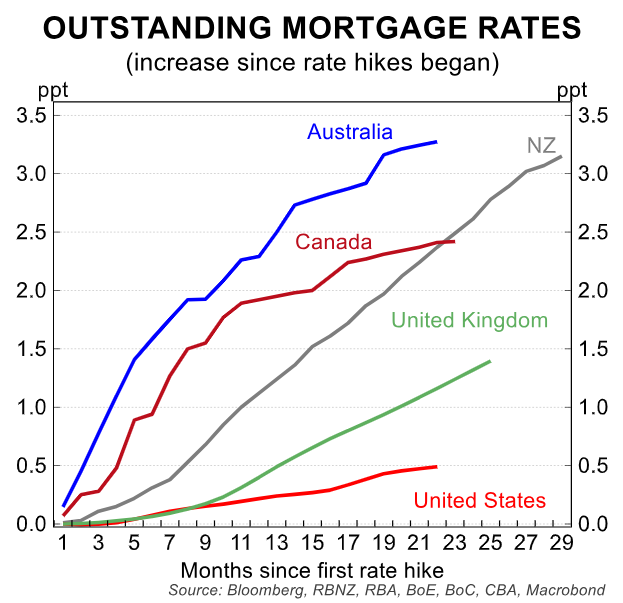
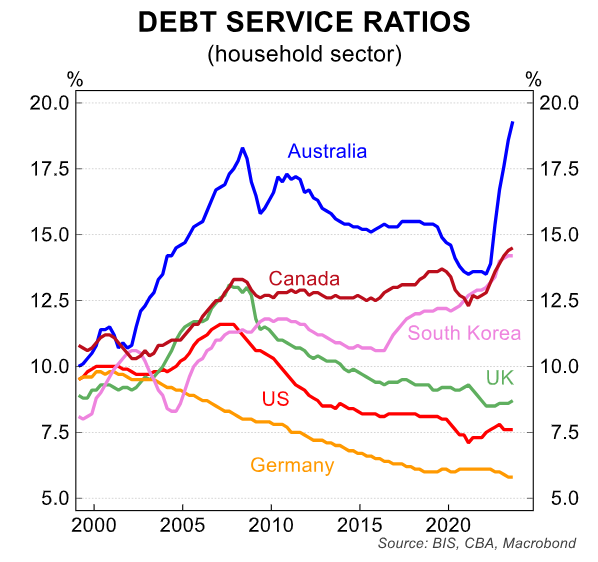
Third, Australians have experienced the sharpest increase in average tax payments in the OECD due to bracket creep and the end of the middle-income tax offset:
Australia recorded the biggest increase to average tax rates in the developed world last financial year due to bracket creep and the end of a tax offset that disproportionately affected low- and middle-income earners.
Data released by the Organisation for Economic Cooperation and Development (OECD) on Thursday showed Australia’s average tax rate increased by 7.6% in financial year 2022-23 — the largest out of the 38 countries in the OECD.
The figures, published as part of the OECD’s annual Taxing Wages report, showed a single Australian without children earning the average wage paid $24,791 in income tax, equivalent to 24.9% of their gross wage.
The OECD said the 7.6% increase occurred for two reasons: the end of a tax offset, and bracket creep.
The next chart from Justin Fabo at Antipodean Macro illustrates the impact on households, with interest payments and tax payments rising sharply as a share of incomes:
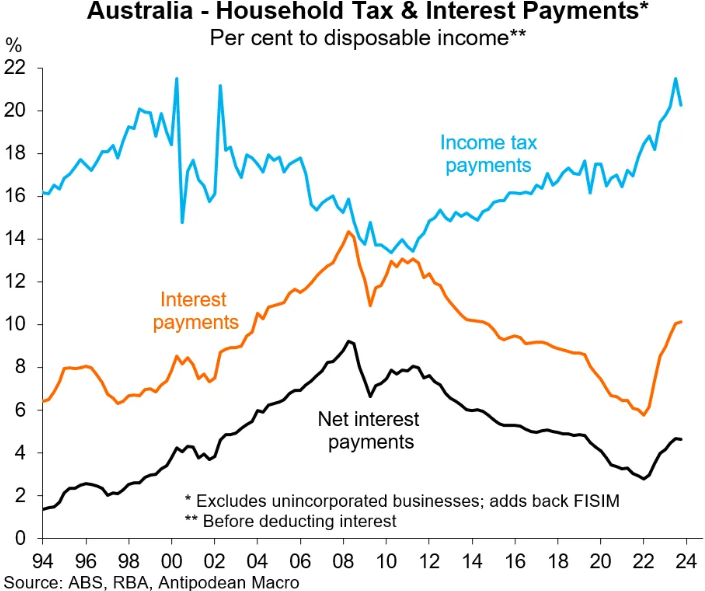
The bottom line is that Australians have been hardest hit by tax and mortgage increases.

